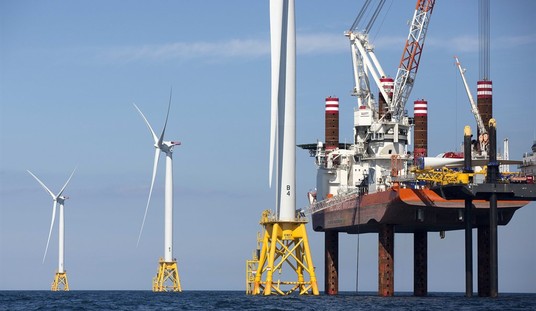If you’ve ever watched one of those BBC television shows featuring spectacular video of animals around the world then you’re already familiar with David Attenborough, or at least with his voice. David is also the younger brother of the late Richard Attenborough who was an actor who starred in Jurassic Park and also an Oscar winning director for his 1982 film Ghandi. Today the BBC released an interview with David Attenborough in which he embraced the idea that the way forward was an economic system not based on profit.
Asked what he thought the future would look like, Attenborough said it wasn’t going to be “paradise,” at least not immediately. Seated before a row of books and CDs, Attenborough said, “I think that the standard of living of the western cultures, civilized countries is going to have to take pause.” He continued, “I think we are going to have to live more economically than we do. And we can do that. I believe that we will do that more happily not less happily.
“The excesses that the capitalist system has brought us have got to be curbed somehow. That doesn’t mean to say that capitalism is dead. I’m not an economist. I don’t know. But I believe that the nations of the world–ordinary people worldwide are beginning to realize that greed does not actually lead to joy.”
Asked to say more about the economic system he added, “Our economic system has been based on the profit principle, that you have to come out at the end of the year having made a profit. And the bigger profit you can make the better it is. In the short term that works but then it ends with disaster. So you have to at last have the wisdom to realize that you can live sustainably. That it is possible that your economics could work on a rather different system from the one which is based on profit.”
He went on to say that he agreed there was no turning the clock back but suggested, “That means that those that have a great deal perhaps will have a little less and those that have very little can have a little more.”
This last statement seems to be tiptoeing close to an endorsement of Marx’s communist motto: From each according to his ability, to each according to his need.
The problem of course is that the alternative system does not work. Capitalism has taken billions of people out of poverty and given them better lives, lives that aren’t focused on basic necessities like food and water, lives that are much longer and less prone to illness (current pandemic excluded).
So it’s a lovely idea that we can get by with less so the rest of the world can have more but it really does not work that way for a whole host of reasons. For one thing, the drive to create profit is fundamentally linked to the drive for efficiency. The difference between a business that makes a profit and one that does not often involves good management, careful book-keeping and taking advantage of economies of scale. All of that is hard work. Anyone at a Fortune 500 company could tell you that the moment someone takes a relaxed attitude the result can quickly turn from success (profit) to failure (shortfall).
What Attenborough is suggesting is that we literally need to stop trying for profit, i.e. stop trying to get more efficiency than we absolutely have to. The real world outcome of this would almost certainly be less efficiency and more failure.
This problem gets compounded when you start talking about some people having a little less so that others can have a little more. Again, it’s a nice idea but how much hard work are people really going to do if they know that any benefit will go to some other group of people they don’t know? Turning every corporation into a non-profit run by saints sounds lovely but it’s not going to work out well for anyone. In the end the people who have less will be angry they didn’t get more and the people who have more will be angry because some of their labor was taken away from them.
There’s also the unspoken problem of how the benefits of society are to be redistributed. The obvious answer, though Attenborough doesn’t say it, is to have some form of government which effectively has ownership of everything and can redistribute it at will. But people who have lived under communist dictatorships will tell you that this always ends badly and often with a large body count.
It’s nice that this beloved 94-year-old multi-millionaire feels we can all get along with a bit less and without the excesses of capitalism but I wonder when the last time was that he wanted for anything. Simply put, there are a lot of jobs out there that aren’t as fulfilling or rewarding as producing nature documentaries (or being an actor, a rock star, etc.) People who do those jobs may have second thoughts if the learn they’re going to be doing them for a lot less both for themselves and their families. Good will is a good thing but it can’t replace the role of self-interest in the economy. When communism has been tried that self-interest doesn’t disappear, it just gets limited to a very select group at the top. That’s how you end up with socialist leaders like the ones in Venezuela who become extremely wealthy while their nation starves.








Join the conversation as a VIP Member